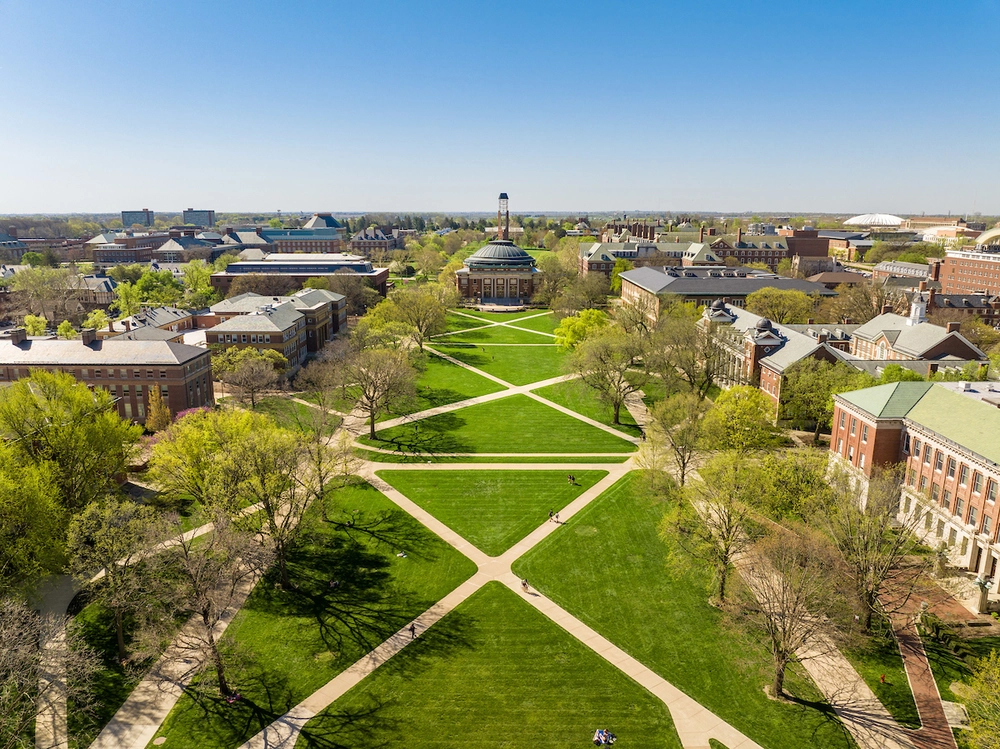
A major classics conference was held at the University of Illinois this semester.
More than 400 people came together for the 121st Annual Meeting of the Classical Association of the Middle West and South (CAMWS), which spanned four days in late March.
The process to bring the conference to campus took a bit longer.
“[We] started applying more than ten years ago, since it had not been here for nearly 100 years,” said Ariana Traill, who currently serves as head of the Department of Classics. “We were excited once we learned we had been chosen.”
CAMWS is an organization for classics teachers at all levels, undergraduate and graduate students, and anyone else who enjoys learning about the world of classical antiquity. While the geographic range of CAMWS includes 32 states and three Canadian provinces, the organization welcomes members from anywhere in the world. Its members come together each year to listen to hundreds of individual presentations and participate in roundtables, workshops, and panel discussions.
Traill led the committee that organized the visit to campus, along with Antony Augoustakis, associate dean for humanities and interdisciplinary programs in the College of LAS and professor of classics, but every member of the department had a role to play.
“The [Illinois] campus is beautiful and historic; the open spaces outside of Lincoln Hall—green, shady, lush—were especially inviting, and the University Library impressed each and every member who wandered through the stacks,” said Lorenzo F. Garcia Jr., who presided over this year’s meeting as president of CAMWS. “But my favorite part of visiting campus was spending time with the wonderful faculty, staff, and students of the Department of Classics, who went out of their way to make the conference so successful. I reached out to every member of the department to ask if they would be willing to volunteer to preside over a particular session, and in every instance, I received a hearty ‘yes!’ in response. Graduate and undergraduate students helped CAMWS members find their way around campus and made us all feel right at home.”
Tallulah Trezevant, an undergraduate student majoring in classics, was among the volunteers who helped the event run smoothly.
“[The graduate students in my department] inspired me to become involved in the conference, both through submitting an abstract (which got accepted!) and volunteering my time,” said Trezevant. “I love being a student at U of I and was eager to show off the best our campus has to offer to all of the guests visiting Champaign-Urbana for the conference.”
Panagiotis Sotiroudis, a graduate student in the department, became involved with CAMWS during his first year as a graduate student and has been participating ever since.
“CAMWS is a great place to present your graduate research to a very welcoming audience of colleagues, especially if it’s your very first conference paper,” said Sotiroudis. “Since this is one of the most important conferences in the country, it felt like a great opportunity to engage with people in the field and see what kinds of work are being done beyond my own institution.”
Traill said the response they received—both among the attendees and within her own department—made it all worth it.
“The best part was seeing all of the happy attendees talking about how well the conference was going, the great papers they heard, and how much they appreciated our lovely campus and Champaign-Urbana,” said Traill. “It was also heartening to see how generous our volunteers were with their time. They were the secret weapon that made everything run so [well]. I am proud of the way everyone worked together—and very appreciative.”
Garcia said the warm reception is one he won’t forget.
“The feeling of being welcomed cut through all of the work it takes to put on an academic conference,” he said. “I can’t wait to visit beautiful Urbana-Champaign again and spend more time with the friends and colleagues who helped make the meeting so successful.”
Traill and the rest of the department are already looking ahead, too.
“I do not think we will have to wait 100 years to host again!” she said.